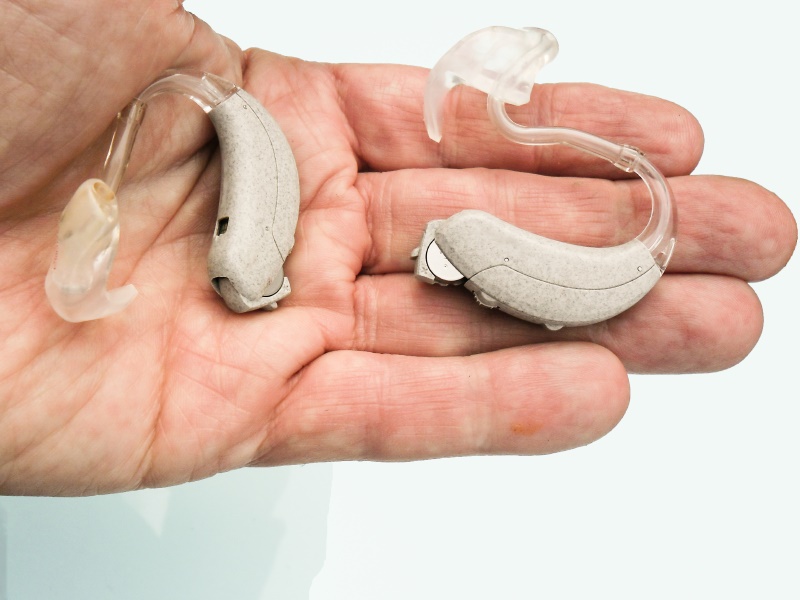
To keep your hearing aids working effectively for years to come, you’ll want to learn proper care and maintenance. And though it may seem like an extra burden, with the right approach your hearing aid care will become easy and automatic.
The key is establishing productive habits.
If you integrate your hearing aid care into your daily and nightly routines, pretty soon it won’t seem like any additional work at all.
Here are some tips for the daily care of your hearing aids (which your hearing professional will also review with you):
Clean your hearing aids on a daily basis – Try to integrate your hearing aid cleansing into your evening routine, so it will become as automatic as brushing your teeth. Daily cleaning is vital because daily hearing aid cleaning can prevent the collection of earwax, dirt, and dust into the various parts of the hearing aid, which can lead to distorted sound with time.
You’ll want to clean your hearing aid with a smooth, dry cloth, while averting any kind of fluids that can destroy the hearing aid electronics. Check with your hearing professional for special guidance on cleaning each kind of hearing aid.
You may also consider purchasing a hearing aid sanitizer, which utilizes ultraviolet light to safely and completely kill hazardous pathogens. Hearing aid cleaning kits are also obtainable with all of the instruments you’ll require to safely and securely clean the device without damaging the electronics.
Always check the batteries – Hearing aid batteries should always be tested and replaced regularly to ensure peak hearing aid operation. Consider using a battery tester in the morning to assure you have enough power for the rest of the day, and carry a spare set of batteries on hand.
At night, when your hearing aids are not in use, turn them off and store them in a cool, dry location with the battery door open.
Store your hearing aids in a safe place – In regard to storage, you’ll want to try to remember three things:
- Keep the hearing aids away from moisture. In other words, storing your hearing aids in the bathroom is probably a bad idea.
- Avoid exposing the hearing aids—and hearing aid batteries—to temperature extremes. You’ll want to store your hearing aids in a cool, dry place.
- Avoid storing your hearing aids out in the open, where they can become damaged.
We recommend keeping your hearing aids in a case or drying kit within the drawer of a bedroom side-table. This will protect the hearing aids from moisture, temperature extremes, and damage from being knocked off the table.
In addition, remember to take out your hearing aids prior to showering, swimming, or using a hair dryer or hair spray.
Maintain ear hygiene – Even though earwax has many beneficial attributes, like protection and lubrication of the ear canal, it can cause severe damage to your hearing aids. As it gets lodged within the hearing aid hardware, sound can become distorted.
Make sure you’re sustaining proper ear hygiene, and if you experience excess earwax, consider scheduling a visit with a professional.
Carefully put in your hearing aids – While putting in your hearing aids, lean over a table or soft surface in case the hearing aids fall. Hearing aids contain fragile electronics, so a fall on a hard surface can produce severe damage.
Even with scrupulous cleaning and maintenance, over time the hearing aid will call for more comprehensive cleaning or repair.
To assure that you continue to achieve the best sound possible, we highly recommend having your hearing aids professionally cleaned by a hearing specialist at least two times a year.
Hearing care professionals will render a deep cleaning, a tune-up, and will sometimes replace parts. Staying current on this routine maintenance will expand the life of your hearing aids and will assure that you get the optimal sound.
